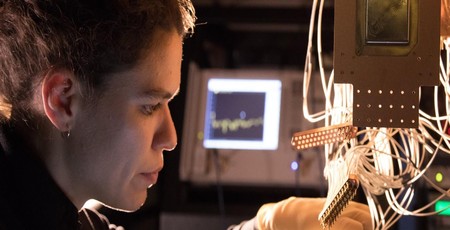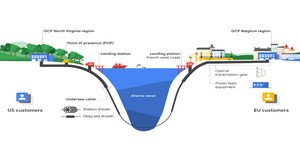
Advertising giant Google has released information about Bristlecone, a new quantum processor boasting 72 qubits - eight times more than its previous design.
Designed around quantum bits, or qubits, rather than the traditional binary bits of regular computing, quantum computing holds the potential of significantly increasing computation performance for selected workloads - including, in theory, the factorisation of prime numbers, a fact which could have a serious impact on the use of cryptography in modern life and has led companies including Google to invest in so-called post-quantum cryptographic research projects. At present, though, quantum computers are limited by their complexity with the number of qubits available in implementations from IBM, the University of Bristol, and Microsoft being measured in the low-dozens.
Bristlecone, Google claims, is different. Using a new design which replaces a one-dimensional linear array of qubits with a two-dimensional square, Bristlecone builds on the company's previous nine-qubit build with 72 qubits - enough, the company claims, to successfully become the first to demonstrate unquestionable quantum supremacy, where a quantum computer outperforms a traditional binary supercomputer at a well-defined problem.
'We are looking to achieve similar performance to the best error rates of the 9-qubit device, but now across all 72 qubits of Bristlecone,' writes Google's Julian Kelly in the preview blog post. 'We believe Bristlecone would then be a compelling proof-of-principle for building larger scale quantum computers. We are cautiously optimistic that quantum supremacy can be achieved with Bristlecone, and feel that learning to build and operate devices at this level of performance is an exciting challenge! We look forward to sharing the results and allowing collaborators to run experiments in the future.'
Google has not yet indicated when the Bristlecone chip will begin its run on quantum supremacy.

MSI MPG Velox 100R Chassis Review
October 14 2021 | 15:04








Want to comment? Please log in.